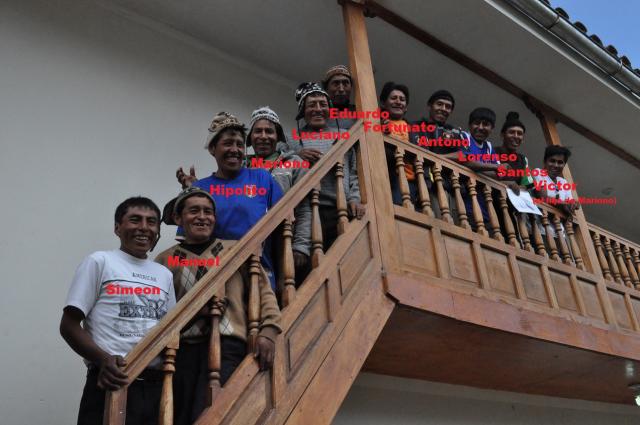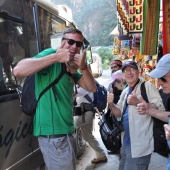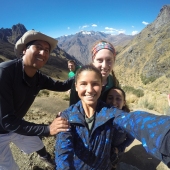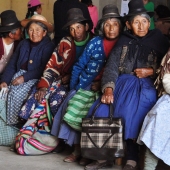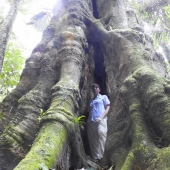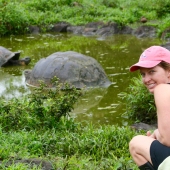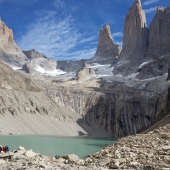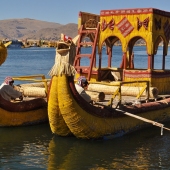Peru: Every Hike you Book Supports the Best Porters Ever!
Whether you know it or not, every time you book any hike in Peru, a porter (in some companies, including ours, 2 porters) gets a job. Porters come from small Qechua communities scattered through the Andes mountains near Cusco. It's the porters who buy the food, carry the loads, set up the camps, prepare the meals, clean up meals and handle all the equipment for all hikes. And in some cases, donkeys. Porters are needed for all multi-day hikes in Peru: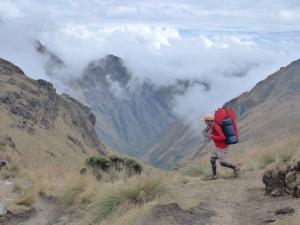
- 4-Day Inca Trail
- Salkantay Trek
- Cachicaata Trek
- Lares Valley Trek
- Choquequirao Trek
- Huchuy Qosqo Trek
- Santa Cruz Trek
Having a job outside the village is critical to supporting their families. All porters work in their village by farming and raising livestock.
Life in the village is cashless. Farming and livestock provides some food for their families, but not the cash needed for things like toothbrushes, educational materials, clothing, cell phones, or goods that can't be grown.
Working as porters for multi-day hikes provides income and connections to the modern world. Here's where you come in. Every time you reserve any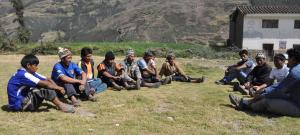 multi-day hike, Adios Adventure Travel hires 2 porters for each person who hikes. Our licensed guides are the "friendly faces" of our company, but the porters are the back-bone of all our hikes.
multi-day hike, Adios Adventure Travel hires 2 porters for each person who hikes. Our licensed guides are the "friendly faces" of our company, but the porters are the back-bone of all our hikes.
It's not always obvious how hard the porters work, but when you arrive in camp after a long day of hiking, they have your tent ready, hot water on for tea, and a lovely bowl of warm water for a wash, followed by a home-made dinner. They carry up to 11 lbs/5.5 kg of your personal belongings every day while you hike.
So we went to visit our porters in the village of Kallipata, and sat down to chat about their lives. We found out they have a need for shelters for their livestock. They have the mud-bricks, timber and labor, but they're lacking in funds to buy concrete, nails and corrugated roofing. Each shelter costs about $500 to build. (including the cost to transport from urban stores to rural villages) They need about 15 shelters.
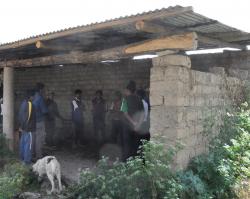 The next priority is dental care. Chronic tooth pain is common and they don't have meds to combat the pain. So they live with it as long as possible, then they pay to have the tooth extracted. The nearest dentist has a part-time office in Paurcotambo, about 15 minutes on foot. Pain management is not a high priority, so having procedures is painful and therefore to be avoided.
The next priority is dental care. Chronic tooth pain is common and they don't have meds to combat the pain. So they live with it as long as possible, then they pay to have the tooth extracted. The nearest dentist has a part-time office in Paurcotambo, about 15 minutes on foot. Pain management is not a high priority, so having procedures is painful and therefore to be avoided.
While I'm meeting with the porters, children pour out of the school and dance around us during their recess. They slurp on hard suckers and baggies full of colored, sweetened syrupy liquid. The porters admit they need to be educated on preventive dental care. Toothbrushes wouldn't hurt either.
Finally, the last thing they discussed was the lack of school supplies for their kids. The village school serves 90 students up to grade 6, then they walk over an hour each way to attend secondary school in Paurcotambo. The state-funded school supplies that trickle out to the villages are scant. Teachers learn to make do and work around the limits.
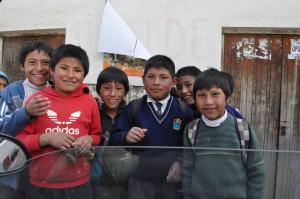 All you have to do is keep booking those hikes and we will continue to hire porters. If you want to show a little extra appreciation, it's not expected, but it's always welcome. They asked for headlamps and synthetic, sleeping bags with stuff sacks. Most porters carry a heavy wool blanket to stay warm at night. Having a lightweight, warm sleeping bag is a huge improvement.
All you have to do is keep booking those hikes and we will continue to hire porters. If you want to show a little extra appreciation, it's not expected, but it's always welcome. They asked for headlamps and synthetic, sleeping bags with stuff sacks. Most porters carry a heavy wool blanket to stay warm at night. Having a lightweight, warm sleeping bag is a huge improvement.
If you'd like to set up a visit to the village to help build a livestock shelter, let us know and we'll be happy to organize it for you. Three days is enough to build a shelter, but 2 days/1 night is very helpful too. You need at least 8 people in your group. They don't get many visitors, but you can expect that they will shower you with the things they have in abundance. Roasted guinea pigs!
Meet the best porters ever! Simeon, Manuel, Hipolito, Mariono, Luciano, Eduardo, Fortunato, Antono, Lorenso, Santos and our cook Victor.
